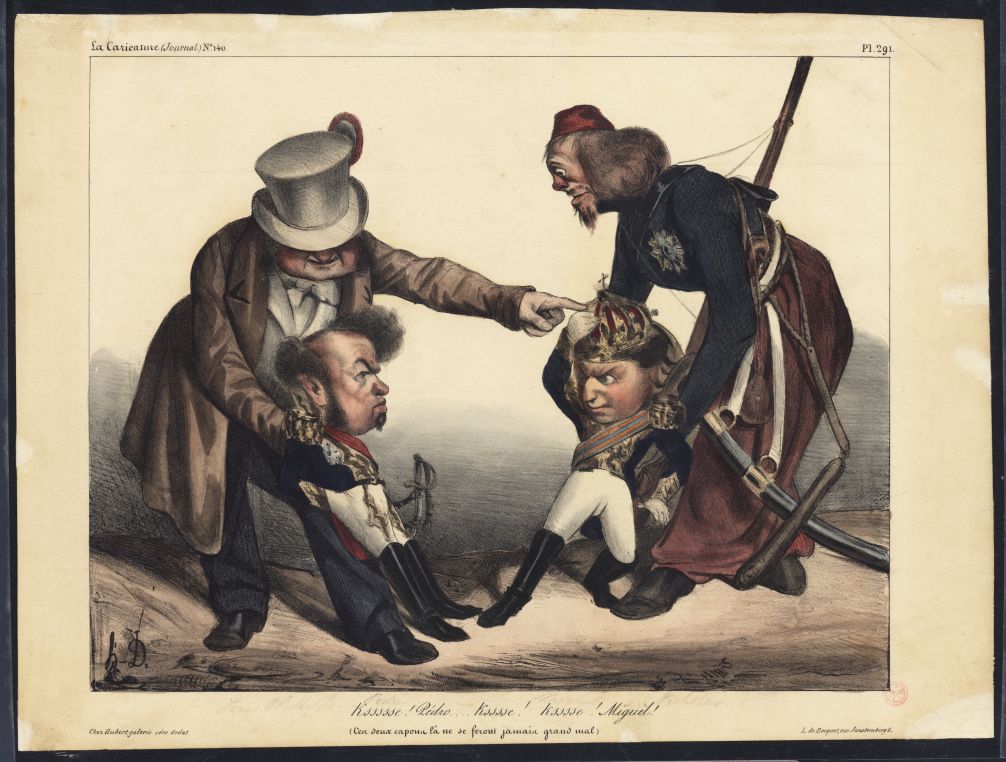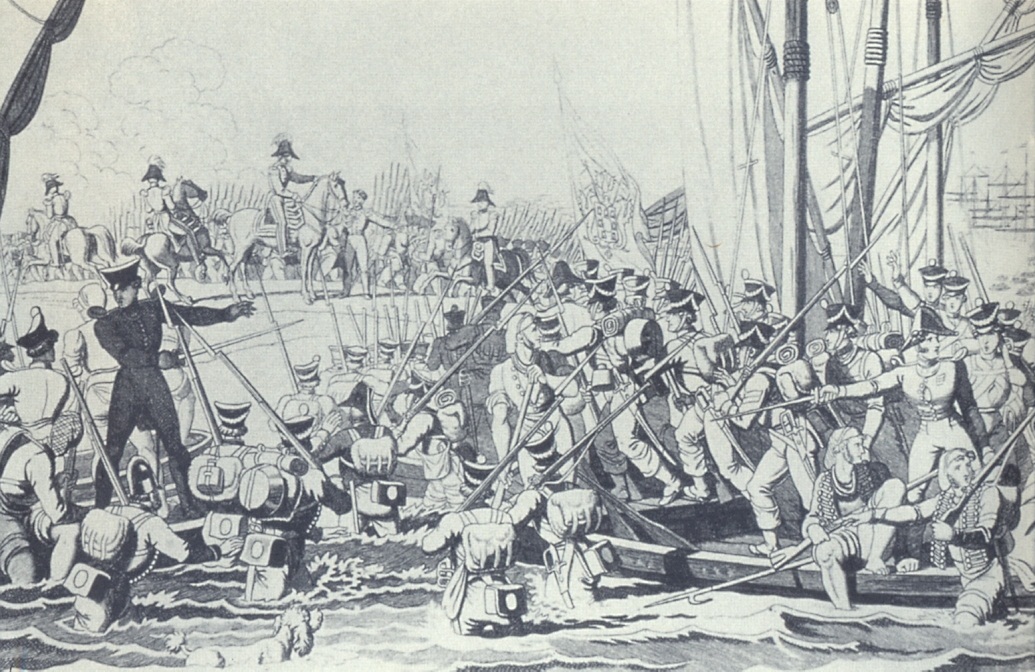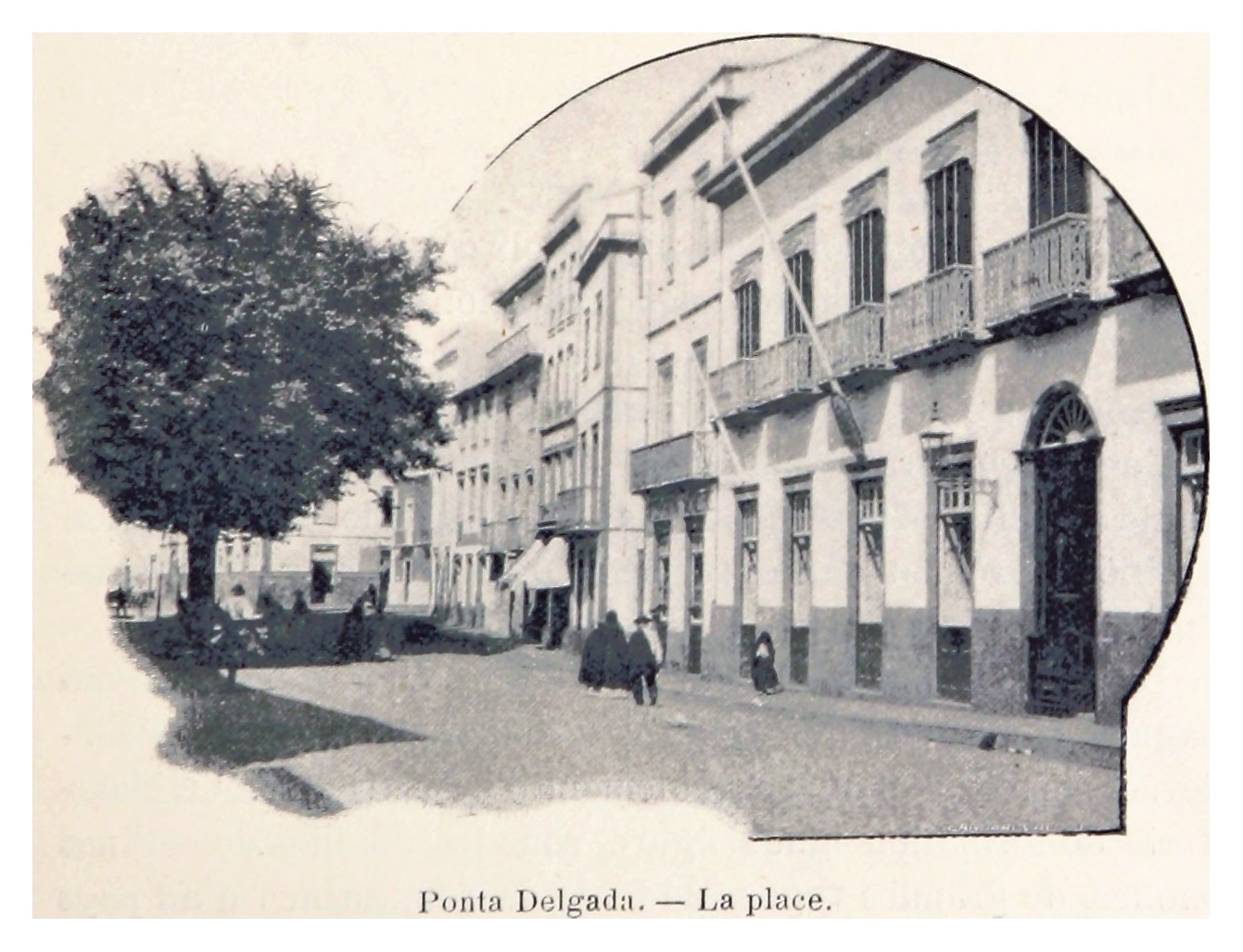|
São Pedro (Ponta Delgada)
São Pedro (Portuguese language, Portuguese for Saint Peter) is the easternmost Freguesia (Portugal), civil parish in the concelho, municipality of Ponta Delgada on the island of São Miguel Island, São Miguel in the archipelago of the Azores. It is part of the historic downtown of Ponta Delgada. The population in 2011 was 7,742, in an area of 2.89 km2. The parish was first incorporated in 1976. History The first inhabitants on the island of São Miguel were primarily farmers, and were granted tracts of land to cultivate. These small populations would eventually form the nucleus of the three main agglomerations in southern São Miguel: Matriz (São Sebastião), Santa Clara e São Jose, and São Pedro. In addition to agriculture, farmers were fishermen, complementing their seasonal activities and sheltered by the natural harbours in the regions. By 1499, the population included the writer Pêro de Teive, who signed the document that elevated Ponta Delgada to status of town. ... [...More Info...] [...Related Items...] OR: [Wikipedia] [Google] [Baidu] |
São Miguel Island
São Miguel Island (; ), nicknamed "The Green Island" (), is the largest and most populous island in the Portugal, Portuguese archipelago of the Azores. The island covers and has around 140,000 inhabitants, with 45,000 people residing in Ponta Delgada, the archipelago's largest city. History In 1427, São Miguel became the second of the islands discovered by Gonçalo Velho Cabral to be settled by colonists from continental Portugal. This date is uncertain, as it is believed that the island was discovered between 1426 and 1437 and inscribed in portolans from the middle of the 15th century. Its discovery was later recorded by Priesthood (Catholic Church), Father Gaspar Frutuoso in the seminal history of the Azores, ''Saudades da Terra'', as he began: "This island of São Miguel where...we are, is mountainous and covered in ravines, and it was, when we discovered it, covered in trees...due to its humidity, with its water showers and ravines warm with sun..." It was sometime afte ... [...More Info...] [...Related Items...] OR: [Wikipedia] [Google] [Baidu] |
Pedro I Of Brazil
''Don (honorific), Dom'' Pedro I (12 October 1798 – 24 September 1834), known in Brazil and in Portugal as "the Liberator" () or "the Soldier King" () in Portugal, was the founder and List of monarchs of Brazil, first ruler of the Empire of Brazil from 1822 to 1831 (under the name of Pedro I) and List of Portuguese monarchs#House of Braganza (1640–1910), King of Portugal in 1826 (under the name of Pedro IV). Born in Lisbon, Pedro was the fourth child of King Dom John VI of Portugal and Queen Carlota Joaquina, and thus a member of the House of Braganza. When the country was Invasion of Portugal (1807), invaded by French troops in 1807, he and his family fled to Portugal's largest and wealthiest colony, Brazil. The outbreak of the Liberal Revolution of 1820 in Lisbon compelled Pedro I's father to return to Portugal in April 1821, leaving him to rule Brazil as regent. He had to deal with challenges from revolutionaries and insubordination by Portuguese troops, all of whi ... [...More Info...] [...Related Items...] OR: [Wikipedia] [Google] [Baidu] |
Roberto Ivens
Roberto Ivens (12 June 1850 in Ponta Delgada – 28 January 1898 in Dafundo, Oeiras) was a Portuguese explorer of Africa, geographer, colonial administrator, and an officer of the Portuguese Navy. Early life Roberto Ivens was the son of Margarida Júlia de Medeiros Castelo Branco and Robert Breakspeare Ivens (1822–?). Margarida was of lower nobility and Roberto's Grandfather, William Ivens, was a merchant awarded the Ivens Arms by George III in 1816. Robert Breakspeare Ivens was a great-grandson of Thomas Hickling (Boston 1745–1836 Ponta Delgada) the American vice-consul in Ponta Delgada. In 1861, Ivens attended the Navy School in Lisbon. At school Roberto was known as "Roberto of the Devil" and he became known as an intelligent young gentleman. He joined the Portuguese Navy in 1870 at the age of 20 and attended Escola Prática de Artilharia Naval in 1871. Ivens left for the Suez Canal in September of the same year, where he was the garrison of the ''Estefânia''. Trave ... [...More Info...] [...Related Items...] OR: [Wikipedia] [Google] [Baidu] |
Hermitage Of Mãe De Deus
The Hermitage of Mãe de Deus (), is a hermitage situated on the hilltop of ''Ladeira da Mãe de Deus'' in the civil parish of São Pedro in the municipality of Ponta Delgada. The hermitage is notable for the intricately detailed cornerstones in black basalt coated in plaster, and painted in white. The stonework is primarily in the main facade and practically all of the area around the temple. History The primitive hermitage of the ''Alto da Mãe de Deus'' was erected under the initiative of Diogo Afonso da Costa Columbreiro, who resided near the site in the 16th century. The chapel was then built on the land of the former Fort of Mãe de Deus, which had been deactivated. During the First World War, the original temple was demolished in 1915, under the supposition that the site would be used as a landmark for attaching German U-Boats. The azulejo tile from the site was collected from the demolished site and housed in the Museum of Ponta Delgada. Sometime after the conflict (i ... [...More Info...] [...Related Items...] OR: [Wikipedia] [Google] [Baidu] |
Azores - S
The Azores ( , , ; , ), officially the Autonomous Region of the Azores (), is one of the two Autonomous Regions of Portugal, autonomous regions of Portugal (along with Madeira). It is an archipelago composed of nine volcanic islands in the Macaronesia region of the North Atlantic Ocean, about west of Lisbon, about northwest of Morocco, about southeast of Newfoundland (island), Newfoundland, Canada, and the same distance southwest of Cork (city), Cork, Ireland. Its main industries are Agriculture in Portugal, agriculture, dairy farming, livestock, fishing in Portugal, fishing, and tourism in Portugal, tourism, which has become a major service activity in the region. In the 20th century and to some extent into the 21st, they have served as a waypoint for refueling aircraft flying between Europe and North America. The government of the Azores employs a large percentage of the population directly or indirectly in the service and tertiary sectors. The largest city of the Azores is P ... [...More Info...] [...Related Items...] OR: [Wikipedia] [Google] [Baidu] |
SMG PDL SPd Universidade Açores Reitoria
SMG may refer to: Organizations * Macao Meteorological and Geophysical Bureau, Direcção dos Serviços Meteorológicos e Geofisicos * Science Museum Group, UK * Scottish Minorities Group, later Outright Scotland * Seoul Metropolitan Government, a local governing body of Seoul, South Korea * SGM Light, a Danish manufacturer of LED lighting * SMG plc, later STV Group plc, Scotland * SMG (property management) * SMG Studio, game developer based in Sydney, Australia * Sony Music Group, an American multinational music company * Southall Monitoring Group * Spaceflight Meteorology Group, US * Starcom Mediavest Group * Suzuki Motor Gujarat * UN Senior Management Group Media * Shanghai Media Group * Scandinavian Music Group, a Finnish pop/rock band * Sex Machineguns, a Japanese metal band * ''Super Mario Galaxy'', a video game Transport * Santa Maria Airport (Peru), IATA code * South Morang railway station, Melbourne * St Margarets railway station (London), by National Rail station co ... [...More Info...] [...Related Items...] OR: [Wikipedia] [Google] [Baidu] |
Miguelist
In the history of Portugal, a Miguelist () is a supporter of the legitimacy of the king Miguel I of Portugal and his descendants. Miguel was regent for his niece Queen Maria II of Portugal, and potential royal consort. However, he claimed the Portuguese throne in his own right on the grounds that the "Fundamental Laws of the Kingdom" deprived his elder brother Pedro IV of his right to reign (and of any right of Pedro's daughter to inherit the kingdom from her father) when Pedro became sovereign of the former Portuguese colony of Brazil and launched war on Portugal to oust Miguel as a usurper. This overall led to a political crisis, during which many people were killed, imprisoned, persecuted or sent into exile, culminating in the Portuguese Liberal Wars between authoritarian Miguelists (led by Miguel) and progressive Constitutionalists (led by Pedro). In the end, Miguel was forced from the throne and lived the last 32 years of his life in exile. Miguelism is based not only ... [...More Info...] [...Related Items...] OR: [Wikipedia] [Google] [Baidu] |
Liberal Wars
The Liberal Wars (), also known as the Portuguese Civil War () and the War of the Two Brothers () was a civil war in Portugal that lasted from May 1828 to May 1834, fought between liberal progressive constitutionalists (led by former King Pedro IV) and conservative traditionalists (led by King Miguel I) over the country's system of government and royal succession. Embroiled parties included the Kingdom of Portugal, Portuguese rebels, the United Kingdom, France, the Catholic Church, Spain and Russia. Roots of the conflict The death of King John VI in 1826 created a dispute over royal succession. While Dom Pedro, the Emperor of Brazil, was the king's oldest son, his younger brother Miguel contended that Pedro had forfeited his claim to the throne by declaring Brazilian independence and by declaring war on the Kingdom of Portugal, therefore violating the succession rules mentioned in the Fundamental Laws of the Kingdom. Pedro briefly entitled himself King Pedro IV of P ... [...More Info...] [...Related Items...] OR: [Wikipedia] [Google] [Baidu] |
Ponta Delgada
Ponta Delgada (; ) is the largest municipality (''concelho'') and executive capital of the Autonomous Region of the Azores in Portugal. It is located on São Miguel Island, the largest and most populous in the archipelago. As of 2021, it has 67,287 inhabitants, in an area of . There are 17,629 residents in the three central Freguesia (Portugal), civil parishes that comprise the historical city: São Pedro (Ponta Delgada), São Pedro, São Sebastião (Ponta Delgada), São Sebastião, and São José (Ponta Delgada), São José. Ponta Delgada became the region's administrative capital under the Political status of the Autonomous Region of the Azores, revised constitution of 1976; the judiciary and Catholic episcopal see, See remained in the historical capital of Angra do Heroísmo while the Legislative Assembly of the Azores was established in Horta (Azores), Horta. History The origin of the placename Ponta Delgada (Portuguese for ''delicate or thin point'') was elaborated by the ... [...More Info...] [...Related Items...] OR: [Wikipedia] [Google] [Baidu] |
Marina De Ponta Delgada (Portugal)
A marina (from Spanish , Portuguese and Italian : "related to the sea") is a dock or basin with moorings and supplies for yachts and small boats. A marina differs from a port in that a marina does not handle large passenger ships or cargo from freighters. The word ''marina'' may also refer to an inland wharf on a river or canal that is used exclusively by non-industrial pleasure craft such as canal narrowboats. Emplacement Marinas may be located along the banks of rivers connecting to lakes or seas and may be inland. They are also located on coastal harbors (natural or man made) or coastal lagoons, either as stand alone facilities or within a port complex. History In the 19th century, the few existing pleasure craft shared the same facilities as trading and fishing vessels. The marina appeared in the 20th century with the popularization of yachting. Facilities and services A marina may have refuelling, washing and repair facilities, marine and boat chandlers, stores and ... [...More Info...] [...Related Items...] OR: [Wikipedia] [Google] [Baidu] |






